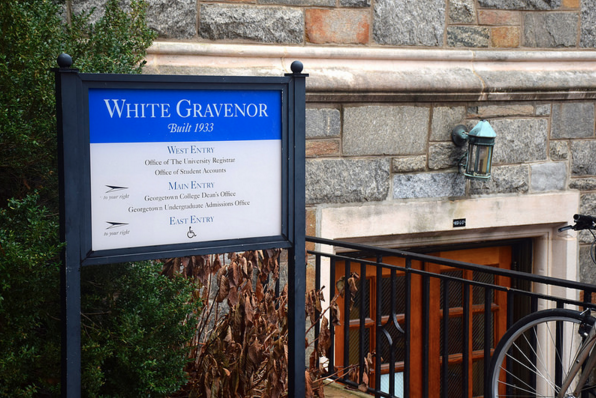On Jan. 24, the GUSA Senate voted to issue a referendum on the GUSA executive ballot regarding moving to an open registration system and eliminating pre-registration. The resolution passed 22-0, with one abstention. The election and referendum are to be held on Feb. 18.
Senators Michael Fiedorowicz (COL ‘18) and Roopa Mulpuri (SFS ‘18) of the Intellectual Life Committee proposed the legislation, which would add a question about the course registration process to the GUSA executive ballot. A two-week informational campaign about the possible changes to the registration process, separate from the referendum, is to be launched before the voting takes place.
The university currently uses the registration software Ellucian Banner 8, purchased in 2009 for $17 million, and has already decided to upgrade to Banner 9, which does not support pre-registration. “It’s a question of whether or not they’re going to contract out to developers to recreate … the pre-registration, which will, we’ve been told, cost hundreds of thousands of dollars,” Mulpuri said.
According to Fiedorowicz, with live registration implemented, students would be allowed to register at a certain time of day, depending on their class year. “It would function a lot like the one we have now, but it would skip pre-registration and go straight to registration completion. So it’s basically live registration.” Currently, students’ pre-registration requests are processed to take into account class year, number of credits, and prioritization.
After some debate, the legislation was amended to include a neutral option on the referendum. Students will have an opportunity to express support for pre-registration, for live registration, or no preference. “This is our duty to pass this referendum, and I believe it’s right to have a ‘no preference’ option on there so we can actually have an accurate assessment of what the students think,” Senator Richie Mullaney (COL ‘18) said. “If 80 percent of people say they don’t care, it’s good to know because maybe it’s not worth spending our resources on,” added GUSA Vice President Connor Rohan (COL ‘16).
The senators expressed concern that administrators misunderstood student opinion at the town hall meeting held on Dec. 7 with former registrar John Q. Pierce, who recently announced his retirement. “Right now they’re under the impression that we want to switch to live registration, because students don’t like waiting for responses about their classes. And I’m not convinced that is true,”Fiedorowicz said.
When asked by GUSA Senate Chair Enushe Khan (MSB ‘17) during the Town Hall about the effectiveness of a GUSA-led student referendum on the issue, Pierce opposed the idea of an immediate initiative. “I don’t think it should be held before students work with the academic councils,” he said at the time.
Fiedorowicz, however, affirmed GUSA’s role in representing student voices, despite Pierce’s opinion. “We are independent of the academic councils,” he wrote in an email to the Voice, “and we need to be confident in where we, and the student body, stand on the registration system before making efforts towards a specific goal.”
Khan said she recognizes the role of both academic councils and GUSA in educating students about the registration process. “The best way to spur the educational campaign that will be presented before the referendum is to partner with the academic councils,” Khan wrote in an email to the Voice. “If the student body has access to information, then the referendum is appropriate.” She also cited the close relationship between the organizations, as Mulpuri is a member of the SFS Academic Council, and, along with Fiedorowicz, co-chairs the Subcommittee on Curricular Reform.




